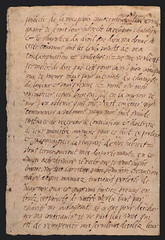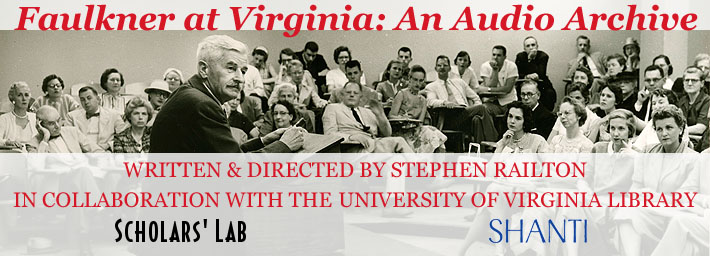English Corner
http://h-net.msu.edu/cgi-bin/logbrowse.pl?trx=vx&list=h-folk&month=1007&week=b&msg=5E9s3ACWWRUnypictklb5A&user=&pw=
Penn State Harrisburg, which features a doctoral program in American Studies
with a folk cultural area of study, in cooperation with Indiana University
ScholarWorks and Google is happy to report the availability online of back
issues for three important journals in folklore studies: Folklore Historian,
Jewish Folklore and Ethnology Review, and Keystone Folklore. The material is
available at no cost in HathiTrust Digital Library at the moment until it
migrates to Google Books (where it will still be available gratis). All the
material is viewable as full-text with the exception of some issues of Keystone
Folklore Quarterly, which are at present have limited search functionality. The
URLs are:
Keystone Folklore: http://catalog.hathitrust.org/Record/000496431
Keystone folklore quarterly: http://catalog.hathitrust.org/Record/006090454
(Keystone Folklore was the publication of the Pennsylvania Folklore Society and
featured important early works in folklife and material culture, public
folklore, and ethnic-urban folklore, many produced by students at the folklore
and folklife program at the University of Pennsylvania).
Jewish Folklore and Ethnology Review:
http://catalog.hathitrust.org/Record/006931628
Jewish folklore and ethnology newsletter:
http://catalog.hathitrust.org/Record/006929769
See also:
http://www.openfolklore.org/
Penn State Harrisburg, which features a doctoral program in American Studies
with a folk cultural area of study, in cooperation with Indiana University
ScholarWorks and Google is happy to report the availability online of back
issues for three important journals in folklore studies: Folklore Historian,
Jewish Folklore and Ethnology Review, and Keystone Folklore. The material is
available at no cost in HathiTrust Digital Library at the moment until it
migrates to Google Books (where it will still be available gratis). All the
material is viewable as full-text with the exception of some issues of Keystone
Folklore Quarterly, which are at present have limited search functionality. The
URLs are:
Keystone Folklore: http://catalog.hathitrust.org/Record/000496431
Keystone folklore quarterly: http://catalog.hathitrust.org/Record/006090454
(Keystone Folklore was the publication of the Pennsylvania Folklore Society and
featured important early works in folklife and material culture, public
folklore, and ethnic-urban folklore, many produced by students at the folklore
and folklife program at the University of Pennsylvania).
Jewish Folklore and Ethnology Review:
http://catalog.hathitrust.org/Record/006931628
Jewish folklore and ethnology newsletter:
http://catalog.hathitrust.org/Record/006929769
See also:
http://www.openfolklore.org/
KlausGraf - am Freitag, 30. Juli 2010, 21:39 - Rubrik: English Corner
noch kein Kommentar - Kommentar verfassen
Peter Hirtle in Archives-L:
There is good and bad news. The good news is that since WWI occurred before 1923, sheet music from that period would be in the public domain in the U.S.
The bad news is that no sound recording made before 1972 has federal copyright protection. They are instead protected by state common law copyrights, and will not enter the public domain until in most cases 1 January 2049, regardless of when they were recorded. (I have a section on sound recording copyrights in the chart at http://copyright.cornell.edu/resources/publicdomain.cfm ). Note that state protection is afforded even to European recordings, most of which enter the public domain in their home country after 50 years.
In theory, then, copying or performing a sound recording made during WWI could be a violation of state common law copyrights. If the recording was made after 1972, you could be infringing on the federal right of public performance.
You have three options:
1. Have local musicians record for you new versions of World War I songs (securing their permission to use the recordings as you see fit).
2. Determine that your use is authorized under Wyoming law. This is quite possible - many state laws are primarily anti-bootlegging statutes, and may not care about non-commercial performance in an exhibition.
3. Ignore the law. Note that many companies do exactly that, releasing copies of early recordings confident in the idea that no one cares about the copyright in those recordings anymore. Same thing with the many web sites that include recordings of WWI music. I wrote a blog posting awhile ago called "Real Life Risk Assessment" (found at http://blog.librarylaw.com/librarylaw/2009/10/real-life-risk-assessment.html ) praising the Judaica Sound Archives for digitizing and making available much of their holdings, in spite of the fact that little is in the public domain. You could do the same.
For more on the copyright of early sound recordings, I highly recommend Peter Jaszi's CLIR report, "Protection for Pre-1972 Sound Recordings under State Law and Its Impact on Use by Nonprofit Institutions: A 10-State Analysis" at http://www.clir.org/pubs/abstract/pub146abst.html and June Besek's CLIR report "Copyright Issues Relevant to Digital Preservation and Dissemination of Pre-1972 Commercial Sound Recordings by Libraries and Archives" at http://www.clir.org/pubs/reports/pub135/contents.html
There is good and bad news. The good news is that since WWI occurred before 1923, sheet music from that period would be in the public domain in the U.S.
The bad news is that no sound recording made before 1972 has federal copyright protection. They are instead protected by state common law copyrights, and will not enter the public domain until in most cases 1 January 2049, regardless of when they were recorded. (I have a section on sound recording copyrights in the chart at http://copyright.cornell.edu/resources/publicdomain.cfm ). Note that state protection is afforded even to European recordings, most of which enter the public domain in their home country after 50 years.
In theory, then, copying or performing a sound recording made during WWI could be a violation of state common law copyrights. If the recording was made after 1972, you could be infringing on the federal right of public performance.
You have three options:
1. Have local musicians record for you new versions of World War I songs (securing their permission to use the recordings as you see fit).
2. Determine that your use is authorized under Wyoming law. This is quite possible - many state laws are primarily anti-bootlegging statutes, and may not care about non-commercial performance in an exhibition.
3. Ignore the law. Note that many companies do exactly that, releasing copies of early recordings confident in the idea that no one cares about the copyright in those recordings anymore. Same thing with the many web sites that include recordings of WWI music. I wrote a blog posting awhile ago called "Real Life Risk Assessment" (found at http://blog.librarylaw.com/librarylaw/2009/10/real-life-risk-assessment.html ) praising the Judaica Sound Archives for digitizing and making available much of their holdings, in spite of the fact that little is in the public domain. You could do the same.
For more on the copyright of early sound recordings, I highly recommend Peter Jaszi's CLIR report, "Protection for Pre-1972 Sound Recordings under State Law and Its Impact on Use by Nonprofit Institutions: A 10-State Analysis" at http://www.clir.org/pubs/abstract/pub146abst.html and June Besek's CLIR report "Copyright Issues Relevant to Digital Preservation and Dissemination of Pre-1972 Commercial Sound Recordings by Libraries and Archives" at http://www.clir.org/pubs/reports/pub135/contents.html
KlausGraf - am Mittwoch, 28. Juli 2010, 23:12 - Rubrik: English Corner
noch kein Kommentar - Kommentar verfassen
Following pressure from intelligence agencies, Prime Minister Benjamin Netanyahu has extended the period during which material contained in government archives may remain classified by 20 years.
The new regulations, approved two weeks ago, mean archived material scheduled to become available to scholars and the public after 50 years will now remain in the vaults until 70 years have passed since they were placed there.
http://www.haaretz.com/print-edition/news/state-archives-to-stay-classified-for-20-more-years-pm-instructs-1.304449
Update: http://weblog.histnet.ch/archives/4126 (Switzerland German)
The new regulations, approved two weeks ago, mean archived material scheduled to become available to scholars and the public after 50 years will now remain in the vaults until 70 years have passed since they were placed there.
http://www.haaretz.com/print-edition/news/state-archives-to-stay-classified-for-20-more-years-pm-instructs-1.304449
Update: http://weblog.histnet.ch/archives/4126 (Switzerland German)
KlausGraf - am Mittwoch, 28. Juli 2010, 15:26 - Rubrik: English Corner
KlausGraf - am Dienstag, 27. Juli 2010, 22:26 - Rubrik: English Corner
noch kein Kommentar - Kommentar verfassen
KlausGraf - am Dienstag, 27. Juli 2010, 14:40 - Rubrik: English Corner
noch kein Kommentar - Kommentar verfassen
KlausGraf - am Montag, 26. Juli 2010, 23:37 - Rubrik: English Corner
noch kein Kommentar - Kommentar verfassen
KlausGraf - am Montag, 26. Juli 2010, 12:26 - Rubrik: English Corner
noch kein Kommentar - Kommentar verfassen
KlausGraf - am Donnerstag, 22. Juli 2010, 15:26 - Rubrik: English Corner
noch kein Kommentar - Kommentar verfassen
The Archives and Records Association UK and Ireland (ARA) aims to represent the interests of those who work in the sector and those who use archives and records, such as family and local historians, teachers, planners, researchers, campaigners and community archive groups.
http://www.communitynewswire.press.net/article.jsp?id=6929262
http://www.communitynewswire.press.net/article.jsp?id=6929262
KlausGraf - am Donnerstag, 15. Juli 2010, 18:20 - Rubrik: English Corner
noch kein Kommentar - Kommentar verfassen
http://www.resourceshelf.com/2010/07/13/the-national-library-of-scotland-is-now-a-member-of-the-the-commons-on-flickr/
http://www.flickr.com/photos/nlscotland/

http://www.flickr.com/photos/nlscotland/

KlausGraf - am Donnerstag, 15. Juli 2010, 15:44 - Rubrik: English Corner
noch kein Kommentar - Kommentar verfassen
